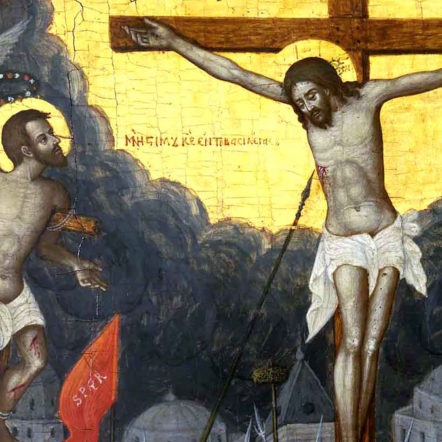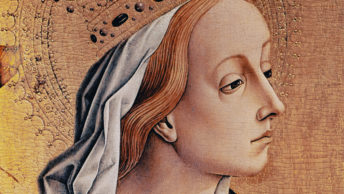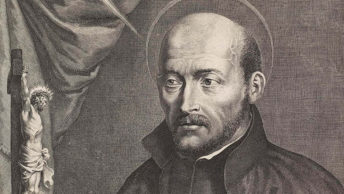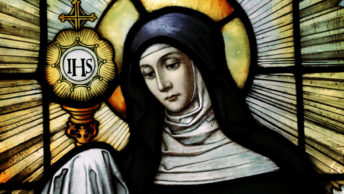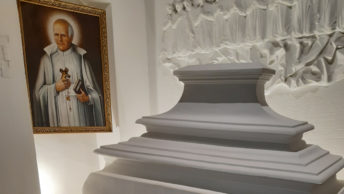The world’s largest democracy is India, a large and important nation in Asia with over one billion inhabitants and a turbulent history. In the 18th century, the British and French fought over India; Great Britain gained the upper hand, and added that vast land to the British Empire. Eventually, under the non-violent leadership of Mahatma Gandhi, India achieved her independence. After the British officially withdrew in 1947, a group of sociologists—those who study how societies are composed and how they work—decided this would be an ideal opportunity for research: what impact would the end of British rule have on the life of the nation? However, after only a few months, the sociologists gave up their study, for as they traveled from one rural village to another, asking common people what life would be like now that the British were gone, they discovered that most people weren’t only unaware the British had left, but, in many cases, hadn’t even known the British were there in the first place. For over 300 years, India had been the crown jewel of the British Empire, but the average Indian was born, lived, and died without even knowing that his or her ruler was the British monarch (Illustration Digest, Dec. 1995, p. 22). This incredible situation is repeated in today’s world in a far more widespread and important way: vast numbers of people live their entire lives without recognizing or acknowledging Jesus as their King. Their ignorance, however, doesn’t exempt them from one day being judged by Him—and we who do acknowledge the Kingship of Jesus have a duty of helping spread the Good News of His Kingdom.
I suspect that on Judgment Day, some sinners may attempt to excuse themselves by saying to Jesus, “Lord, I didn’t know: I didn’t know I’d be judged by You, I didn’t know I’d be held accountable for my sins, and I didn’t know You wanted me to love You and my neighbor.” However, Jesus might respond to this lame excuse by saying, “You could have known if you had wanted to.” Anyone sincerely seeking to know the truth will be given the means to recognize the true identity of Jesus. We see a magnificent example of this in the Gospel of Luke. (23:35-43) The inscription nailed to the Cross saying “This is the king of the Jews” was intended to mock Jesus, but one person took it seriously. The religious and political leaders, the soldiers, and even the criminal crucified to Christ’s left, all jeered at Jesus, but the Good Thief—traditionally known as St. Dismas—somehow knew and believed the truth. At the moment when Jesus least looked like a king, a moment when He was robbed of His dignity, freedom, and power, Dismas—who had no earthly reason to believe in Him—acknowledged His royal authority and humbly asked His favor, and his incredible faith was richly rewarded. He searched for, discovered, and accepted the truth while undergoing the worst suffering of his own life. The Lord’s saving truth is always accessible to those who genuinely seek it. St. Paul tells us in his Letter to the Colossians (1:12-20) that God “delivered us from the power of darkness and transferred us to the Kingdom of His beloved Son, in Whom we have redemption. . . .” This is not a passive process, however; it demands our active response. We don’t earn our salvation, but we must freely accept it, and show by our good deeds that it makes a difference in our lives. Faith is a gift, but a gift that must be actively accepted and used, rather than being set aside and ignored.
It’s easy to understand why most of the world’s population isn’t Christian: they’ve haven’t yet heard the Gospel, or experienced the love of Jesus in a personal way. These persons are responsible for living moral lives, but—if they never hear of Jesus—they’ll be judged by an easier standard, for God doesn’t require the impossible of anyone. However, much more will be demanded of those who claim to be Christian. It is a sad and scandalous thing that of several billion Christians on earth, a large number of them rarely worship God in a public way, routinely engage in dishonest or even violent acts, ignore the urgent needs of their suffering brothers and sisters throughout the world, give a greater allegiance to the values of the world than to those of the Kingdom, vote for political candidates who espouse values contrary to the Gospel, and sometimes discredit the Name of Jesus and the authority of His Church by their behavior and example. Instead of thanking Jesus for dying for them on the Cross, they are, in their own way, mocking Him—and unless they repent, a severe judgment awaits them.
We must make sure we’re not numbered among this group; instead, we must take St. Dismas as our model. This means, first of all, learning to look beyond outward appearances in our search for the truth. Jesus didn’t look like a King when He was nailed to the Cross, but Dismas had the humility and desire to recognize Him. In the same way, we must be willing to set aside the obvious and the routine and look at the big picture: Why are we here on earth? What happens after death? What is the purpose of life? Many people are blissfully unconcerned about such things, and devote themselves to earthly needs and pleasures. Through prayer, Bible reading, and attendance at Mass and reception of the sacraments, we must learn to see and seek what really matters, and by our example and prayers, we must share this truth with others. Secondly, we have to profess and defend the truth, as Dismas did when he rebuked the other criminal for mocking Christ. Our society is becoming increasingly anti-Christian and hostile to the value of all human life; the cultural elite and entertainment industry increasingly mock our beliefs and values, and they get away with it because most Christians keep quiet instead of pushing back. We need to use our influence as citizens and support those groups and Church leaders defending Christian values, regardless of who might be offended. Thirdly, like Dismas, we must desire membership in Christ’s Kingdom above everything else. He asked for this great, unmerited favor, and even though he didn’t deserve it, his prayer was answered. We must have this same confidence in Christ as our King; we too must live, and pray, in a manner that shows Heaven to be our highest priority—for Jesus will never forsake those who give Him their genuine allegiance.
There was nothing wrong with the fact that for several centuries, most of the people of India were completely unaffected by their membership in the British Empire—but the situation for us as Christians is quite different. Our lives must, in ways big and small, bear witness that Christ is our King, and thus help spread His reign throughout the earth.

